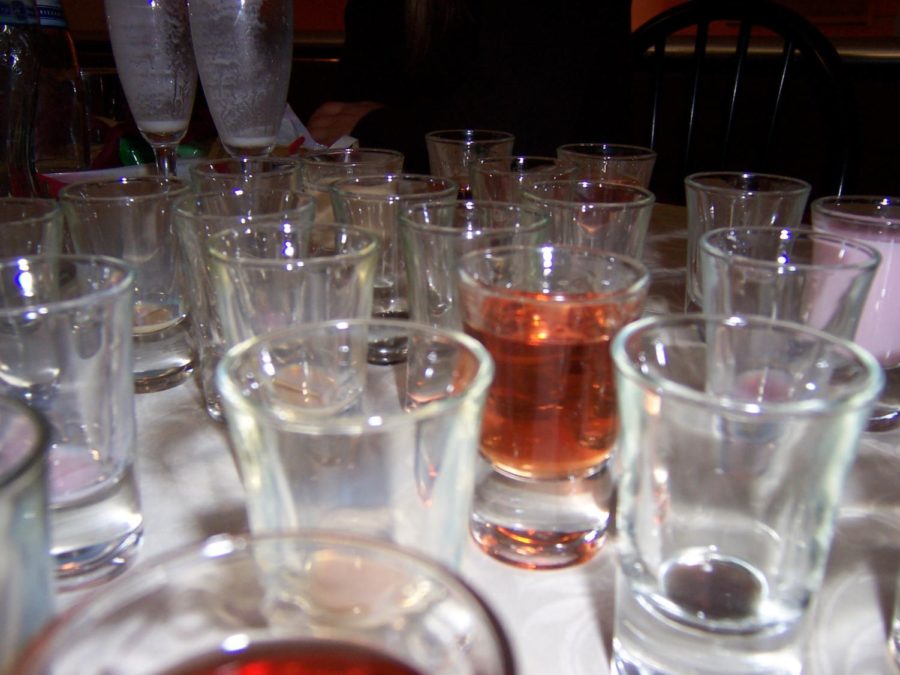Editorial: The greeks’ secret
July 4, 2021
Content warning: This editorial focuses on sexual abuse and assault.
Editor’s Note: Editorials are representative of the views of all five Editorial Board members. One or two members will compile these views and write an editorial.
When heading off to college, some of us can be wary of greek life. Maybe because of the outrageous (sometimes true, sometimes not) tales we’ve heard about fraternities: the wild parties, irresponsible behavior, dangerous hazing or, perhaps most extremely, stories like the Brock Turner case.
He and the survivor had attended a fraternity party the night she was assaulted — by him.
For some reason, that tends to make college students more cautious today than ever.
Full disclosure before we head any further into this discussion: We do not believe that all greek life is responsible for the dangers we listed above, nor do we in any way believe all fraternities or the men in them to be committing these assaults.
We are simply stating the culture behind greek life is helping to hide a shocking and horrifying secret.
For many, fraternities are a great place to start making friends at college. One board member himself is a member of a fraternity. Greek life can help students create long-lasting friendships and social skills.
There is, however, a toxic attitude amongst a select group of college men in greek life and an ignorance and apathy amongst a much larger group that at worst enables, and at best allows sexual assault to occur.
Sexual assault is a pitfall of greek life and the social situations it breeds.
The social situations created by greek life are, in fact, social. Parties are one given of college life, especially greek life, and alcohol is another. While these are often fun and exciting, the flip side of this coin is they also help foster unsafe environments for unsuspecting people.
One study of University of Oregon students found that students affiliated with greek life experience higher rates of sexual assault and harassment than those not enrolled in either a fraternity or sorority. This is not a fraternity- or sorority-specific problem; this is an issue within the larger greek life culture in colleges and universities across the country.
A post from The Guardian discussed sexual assault issues in New Orleans, Milwaukee, Texas and Connecticut.
“Men who join fraternities are three times more likely to rape. … Women in sororities are 74 percent more likely to experience rape than other college women. … One in five women will be sexually assaulted in four years away at school,” one chilling excerpt reads.
Sexual assault and harassment is not just connected to the West Coast. This spans the entire United States and affects students at many universities. This same Guardian publishing displays how disproportionately affected some students, especially those in fraternities and sororities, are.
Fraternities seem to be credited with being “sketchy” and have been for quite some time. It wouldn’t be unreasonable to suggest this reputation has been earned — not just by the horrendous statistics of sexual misconduct that arise out of these institutions, but also through the dangerous and seemingly unstoppable practice of hazing. One University of Iowa fraternity was disciplined just this past March for hazing and alcohol rule violations.
Sexual misconduct is normalized in our society. You may learn about it on the news, but you’ll hear it brushed off or laughed about everywhere. It is not uncommon for it to show up in our society in many facets. We, as a society, have learned to embrace this culture. Sexual violence is embedded almost everywhere but especially in the greek life culture.
Nearly one-fourth of female college students experience sexual assault during their time in school. While it’s difficult to recover the exact numbers of those who experience assaults at a fraternity or sorority compared to other places, evidence shows greek life plays a significant part in forming a culture that fails to protect college students.
It’s necessary to address the fact that sexual assault does not only affect women. Male college-aged students are 78 percent more likely to be assaulted than their non-college counterparts, and this is more likely to happen at a fraternity than any other place.
The issue hits much closer to home than many would like to believe.
Nearly one in four female undergraduate students at Iowa State reported experiencing sexual assault during their college years in a 2019 survey. Similar statistics specifically for male students at Iowa State are not available.
The true number of assaults for both men and women is much higher than the statistics we currently have. Sexual assaults are notoriously under-reported on college campuses for a variety of reasons.
This is not a campus-specific issue. Greek life has contributed to a culture that creates victims and protects perpetrators, a culture that’s been added to for decades. Unless something changes, the overwhelming prevalence of sexual violence in our lives will only become worse.
There are a number of campus and community resources available for students who have experienced sexual abuse or assault.

















